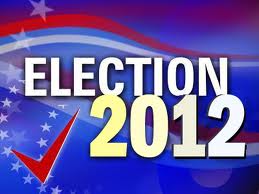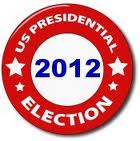Unmarried women, who make up about 25 percent of the US voters, may well be the constituency that decides who will win the White House in 2012.
The liberal research, polling and strategy firm Greenberg Quinlan Rosner (GQR) found after the 2008 election that, “If not for the overwhelming support of unmarried women, John McCain would have won the women’s vote and with it, the White House.” Unmarried women voted for Barack Obama over Sen. John McCain, 70 percent to 29 percent—and cast 23 percent of all votes in that election. Wow!!!
In 2010, GQR found that unmarried women continued to vote strongly for Democratic candidates. But a sufficient number of some unmarried women switched votes, and that helped carry many Republicans to victory. GQR analysis reveals that in 2010, all Republicans running won the vote of over 50 percent of white unmarried women. That was up from just 39 percent of support from that group in the two previous election cycles.
GQR’s pollster Anna Greenberg explained that, “Unmarried women are the most economically vulnerable group, particularly if they have children. While there has been a lot of discussion in this recession about men and manufacturing jobs, it still is the case that unmarried women are the poorest. If they feel their concerns aren’t being addressed by Obama and the Democrats around the economy, it sort of makes some sense there was a decline.”
Besides jobs and the economy, unmarried women are also concerned about their health care coverage and the real effect of ObamaCare in their lives.
Another source of their anxiety is the future of Social Security, which more than 25 percent of unmarried women rely on as their only source of income.
Further post-2010 election analysis of the main swing voters among unmarried women (white women) found that the top two issues that negatively influenced them most about elected officials in Washington were “too much political party bickering” and “too much spending, taxes and deficits.”
Surely, many other issues will be on the minds of unmarried women in the 2012 election, including Washington’s proper role in matters from economic security to national security.
The personal appeal of each candidate—how he or she makes unmarried women feel—will be a critical factor in the outcome. Unmarried women voters will be looking for what others seek in candidates: credibility based on a proven track record, and likeability based on personality and communication skills that show a combination of authority and warmth.
By their sheer numbers, unmarried women have the power to influence America’s leadership course if they are motivated enough to get out and vote. Rallying their participation and support will be a challenge for candidates and advocacy groups.
Whether the prospect of an election that could turn on the votes of unmarried women makes you nervous or excited, it would be a mistake to ignore how important winning them over will be in 2012.
 ***Ed Randazzo, is a nationally syndicated author. He has been a conservative activist and consultant for over 30 years and is currently the Chief News Editor of Life and Liberty Media***
***Ed Randazzo, is a nationally syndicated author. He has been a conservative activist and consultant for over 30 years and is currently the Chief News Editor of Life and Liberty Media***



